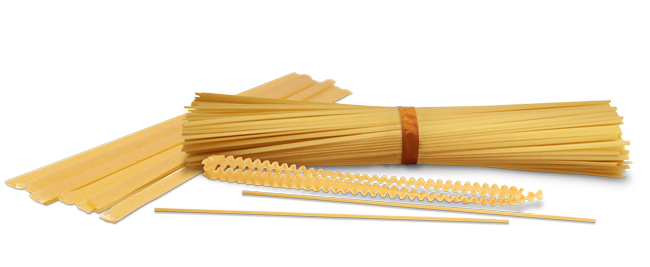
This image has format transparent PNG with resolution 650x267.
You can download this image in best resolution from this page and use it for design and web design.
Spaghetti PNG with transparent background you can download for free, just click on download button.
Spaghetti is a long, thin, solid, cylindrical pasta. Spaghettoni is a thicker form of spaghetti, while capellini is a very thin spaghetti. It is a staple food of traditional Italian cuisine. Like other pasta, spaghetti is made of milled wheat and water and sometimes enriched with vitamins and minerals. Authentic Italian spaghetti is made from durum wheat semolina, but elsewhere it may be made with other kinds of flour. Usually the pasta is white because refined flour is used, but whole wheat flour may be added.
Originally, spaghetti was notably long, but shorter lengths gained in popularity during the latter half of the 20th century and now it is most commonly available in 25–30 cm (10–12 in) lengths. A variety of pasta dishes are based on it, and it is frequently served with tomato sauce or meat or vegetables.
Spaghetti is the plural form of the Italian word spaghetto, which is a diminutive of spago, meaning "thin string" or "twine".
The first written record of pasta comes from the Talmud in the 5th century AD and refers to dried pasta that could be cooked through boiling, which was conveniently portable. Some historians think that Berbers introduced pasta to Europe during a conquest of Sicily. In the West, it may have first been worked into long, thin forms in Sicily around the 12th century, as the Tabula Rogeriana of Muhammad al-Idrisi attested, reporting some traditions about the Sicilian kingdom.
The popularity of spaghetti spread throughout Italy after the establishment of spaghetti factories in the 19th century, enabling the mass production of spaghetti for the Italian market.
In the United States around the end of the 19th century, spaghetti was offered in restaurants as Spaghetti Italienne (which likely consisted of noodles cooked past al dente, and a mild tomato sauce flavored with easily found spices and vegetables such as cloves, bay leaves, and garlic) and it was not until decades later that it came to be commonly prepared with oregano or basil.
Spaghetti is made from ground grain (flour) and water. Whole-wheat and multigrain spaghetti are also available.
Fresh or dry spaghetti is cooked in a large pot of salted, boiling water and then drained in a colander (Italian: scolapasta).
In Italy, spaghetti is generally cooked al dente (Italian for "to the tooth"), fully cooked but still firm to the bite. It may also be cooked to a softer consistency.
Spaghettoni is a thicker spaghetti which takes more time to cook. Spaghettini is a thinner form which takes less time to cook. Capellini is a very thin form of spaghetti (it is also called "angel hair spaghetti" or "angel hair pasta") which cooks very quickly.
Utensils used in spaghetti preparation include the spaghetti scoop and spaghetti tongs.
An emblem of Italian cuisine, spaghetti is frequently served with tomato sauce, which may contain various herbs (especially oregano and basil), olive oil, meat, or vegetables. Other spaghetti preparations include amatriciana or carbonara. Grated hard cheeses, such as Pecorino Romano, Parmesan and Grana Padano, are often sprinkled on top.
In this clipart you can download free PNG images: Spaghetti PNG images free download